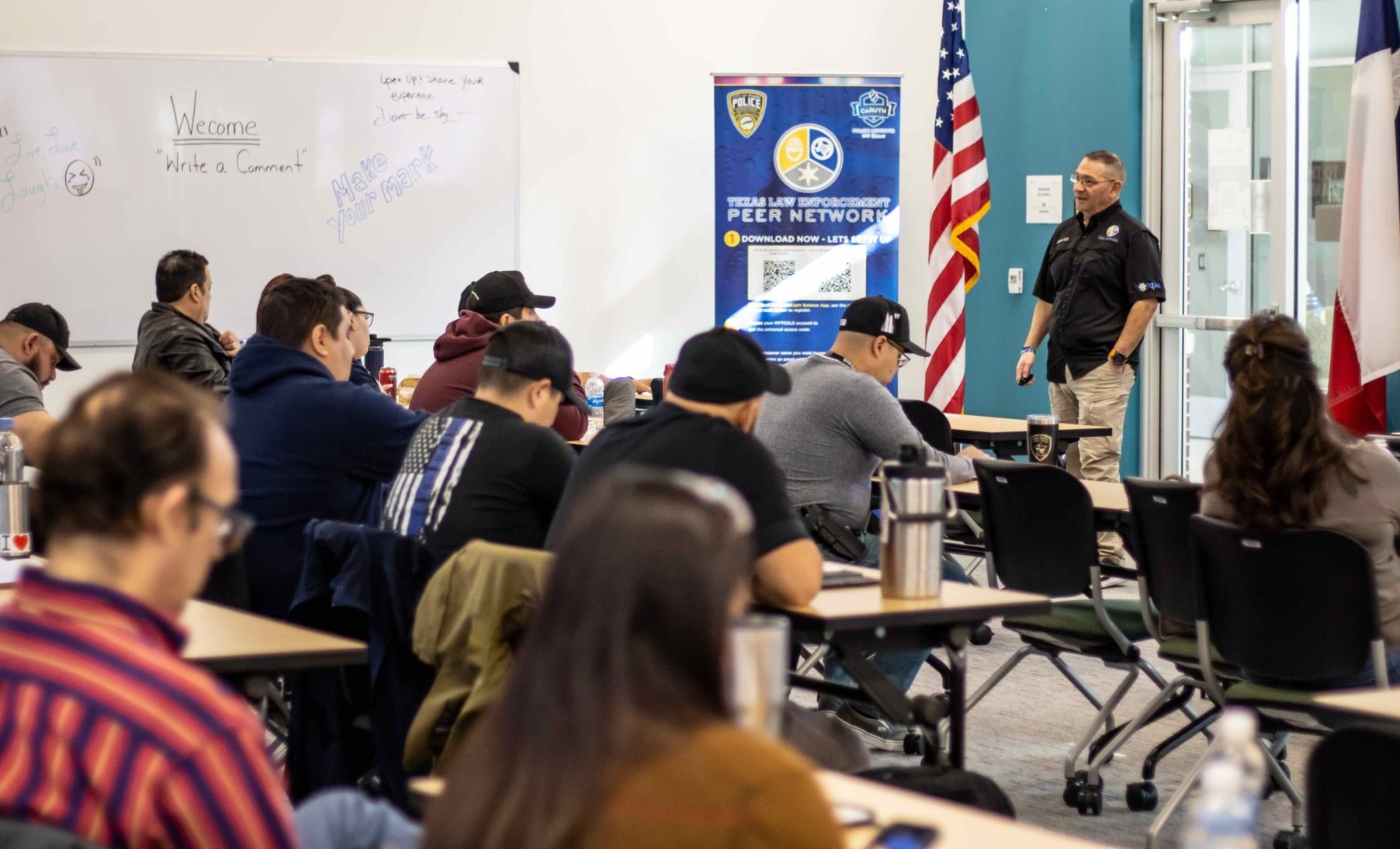STC Holds Training For Suicide Prevention In Law Enforcement

Photo above: Michael Mata, Texas Law Enforcement Peer Network regional director, trained members of the local police on counseling peers who may be suffering from mental health issues at STC’s Regional Center for Public Safety Excellence – STC photo
Selene Rodriguez – January 24, 2023
Texas leads the nation in the number of law enforcement officers who have committed or attempted suicide. It’s a grim statistic South Texas College is working to reverse.
At the STC Regional Center for Public Safety Excellence in Pharr recently, local police received training on becoming peers to help fellow officers who may be suffering from mental health issues that could lead to high divorce rates, paranoia, social isolation and rising suicide rates.
Attendants were trained to serve as peer mentors to other law enforcement agents who download and benefit from the new Green Light Balance mobile app, a resource that allows officers to anonymously connect with other nearby members of the law enforcement community when they need help.
“Usually, if an officer is struggling, they don’t tell anyone but we’re here to listen. We’re going to hear them out and do whatever we can do,” said Michael Mata, Texas Law Enforcement Peer Network regional director.
The software is free for download and will immediately begin communication between volunteer officers and those needing assistance, providing a safe and confidential space to share their experiences, needs and concerns.
The Texas Law Enforcement Peer Network, operated by the Caruth Police Institute at the University of North Texas in Dallas, trains officers to counsel coworkers that may need emotional support in the wake of constant exposure to high stress situations that can result in post-traumatic stress disorder (PTSD), substance abuse and depression.
“If you’ve never lived it, you don’t understand it. That’s why it’s so important that we’re able to be there for each other in these stressful environments,” said Ruben Gaytan from the Mission Police Department.
In Texas, 98% of first-responder suicides between 2017 and 2021 were police officers, which is why Mata emphasized the intention being placed on expanding this program into statewide police academies.
“Before a cadet even graduates, we want them to be aware of the programs we have out in the community that they can reach out to whenever they’re struggling,” he said.
Mata added that this program is unique to Texas, no other state has a network focused solely on emotional support.
“There are 100, 000 officers in the state of Texas and there are 2, 700 police agencies, we need more officers to reach out for help when they need it,” he said.
STC and the UNT Dallas Caruth Police Institute officially announced their one-of-a-kind partnership last year with the goal of providing law enforcement training for local, state and federal law enforcement agencies and departments at the college’s Regional Center for Public Safety Excellence in Pharr.
“Because we’re a public safety facility, we’re trying to aid our professionals by helping them with these types of trainings,” said Robert Vela, law enforcement instructor at the STC Regional Center for Public Safety Excellence. “It’s not only police officers but emergency medical specialists and firefighters, with the stress of their job, and sometimes they also can have a mental crisis.”
For more information on training and programs offered at STC’s RCPSE, visit southtexascollege.edu/rcpse/ or call 956-872-4208.

